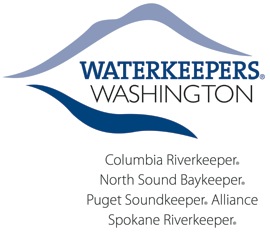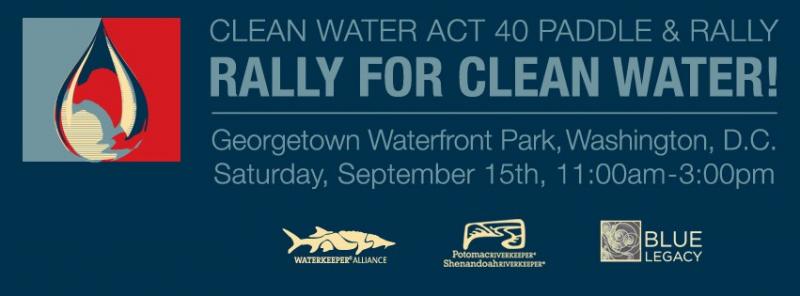Additional writing by Brett VandenHeuvel, Matt Krogh and Chris Wilke
2012 marks the 40th anniversary of the Clean Water Act, an historic piece of legislation that turned the tide on our polluted waterways and began to hold big polluters accountable for their actions and impacts on the health of our communities. Because of the Clean Water Act, today we enjoy vastly improved water infrastructure and treatment, and a robust discussion thanks to citizen involvement in water management. As a direct result, our rivers no longer catch fire as the Cuyahoga River in Cleveland famously did in 1969.
Over the past 40 years, the Clean Water Act created the tools for tackling America's water problems. But if we are to solve this country's, and the world's, looming water crisis, then we must make sure that is an even more powerful instrument over the next 40 years. Pat Mulroy, general manager of the Southern Nevada Water Authority, and one of the country's most progressive water managers, famously said, "If you want to really think outside the box, and really solve our water problems, we need to talk about solutions we've never had the courage to talk about before." Now is the time to show that courage.
Throughout 2012, the Waterkeeper Alliance and Waterkeeper organizations across the United States are celebrating the Clean Water Act as the legal cornerstone of our work to protect clean water and healthy communities, while looking ahead at ways to make it stronger and more successful. This campaign, CWA40, has been recognized with "Swimmable", "Drinkable" and "Fishable" Water Action Days throughout the year that celebrate the victories we achieved utilizing the Act, and highlighting our basic fundamental right to clean water.
The CWA40 campaign culminates this weekend in Washington D.C. with three days of planned events known as the "Rally for Clean Water". While the four Waterkeeper groups in the state of Washington cannot be in the "other Washington" this week to join the celebration, we are holding our own "Virtual" Rally for Clean Water.

Columbia Riverkeeper, North Sound Baykeeper, Puget Soundkeeper and Spokane Riverkeeper have all used the Clean Water Act to clean up and protect our respective waterways. Together we have improved water quality, helped defeat attacks against the Clean Water Act while working collaboratively to strengthen it. In that spirit, and the spirit of the Waterkeeper Alliance and the entire network of 200 Waterkeepers worldwide, we are launching a three-day virtual Rally for Clean Water.
Just as Waterkeeper Alliance counts its proudest accomplishment as the depth and breadth of its member organizations and the unity of their vision for clean water and strong communities, Waterkeepers Washington, counts its biggest accomplishments as the individual victories and the unified goal for cleaner water in the state of Washington. Now as we fly under one flag, while maintaining our own individual strengths in our respective watersheds, Waterkeepers Washington is thrilled to celebrate the 40th anniversary of the Clean Water Act and what it means to our communities around the State of Washington and around the country.

As we look ahead to this weekend and the celebration in D.C., we also look back at the ways Waterkeepers Washington have used the Clean Water Act , but most importantly how the citizens of Washington and the natural resources of the Evergreen state have won. Each of the following reports were penned by the Waterkeeper of that organization.
Puget Soundkeeper, Chris Wilke
In 2011 Puget Soundkeeper settled a landmark citizen Clean Water Act case with BNSF Railway over the company's uncontrolled stormwater pollution at its 80-acre Balmer Yard in Seattle, WA. Although the company asserted that it did not have a discharge to surface waters and didn't even need a permit, Soundkeeper proved otherwise. As a result of this case, the railyard must revise their pollution prevention measures to come into compliance with the Clean Water Act and their stormwater permit. The company also paid $1.5 million to establish a Puget Sound Stewardship and Mitigation Fund to pay for environmental benefit projects to protect water quality in Puget Sound and mitigate the damage caused by years of heavy metals, petroleum and turbidity that flowed from the BNSF property.
Spokane Riverkeeper, Bart Mihailovich
In December of 2009, Spokane Riverkeeper filed a sixty day "notice of violation" with the City of Spokane as a precedent to a federal citizen-enforcement lawsuit to enforce, under the Clean Water Act, a dramatic reduction in these illegal discharges. The notice made clear that City of Spokane officials had known about illegal PCB discharges from city outfalls since 2004 but had repeatedly failed to report or take meaningful and effective steps to stop them. The city had violated both the Clean Water Act and the state's municipal-stormwater permit for Spokane. In April 2011, a settlement was reached, which, to the best of anyone's knowledge, was the largest Spokane-River-related environmental settlement in the region's history. The agreement called for combined-sewer-overflow fixes, enhanced education and outreach, and funds for restoration projects in the area. But maybe more important than the dollars or the significance of the settlement was the region-wide discussion on PCBs that followed - leading to a well-organized and very sophisticated collective effort to identify PCB sources in the Spokane River basin and address them in various ways, from permit-compliance to clean-up to source-control.
Columbia Riverkeeper, Brett VandenHeuvel
Partnering with tribal allies and the Northwest Environmental Advocates, Columbia Riverkeeper succeeded in convincing Oregon to adopt the nation's most protective limits on toxic pollution. This Clean Water Act success will protect people who eat fish and are currently exposed to unsafe levels of mercury, PCBs, and other toxins by ratcheting back the toxic discharges in each individual pollution permit. Native American tribes, including the Confederated Tribes of Umatilla Indian Reservation, have worked extremely hard to convince Oregon to establish new rules that protect people who regularly consume fish. Oregon is now a national leader and our more protective limits will be a benchmark for other states and EPA. In the rulemaking workgroup, Columbia Riverkeeper's staff attorney fought off loopholes proposed by industry lawyers that would have gutted the impact of the new limits. Riverkeeper's practical Clean Water Act experience, earned by years of reviewing pollution permits and challenging illegal discharges, allowed Riverkeeper to recognize attempts to weaken the limits. In addition to creating better policy to reduce toxics, Columbia Riverkeeper enforces the Clean Water Act by uncovering illegal pollution discharge and stopping it. For example, Riverkeeper brought an enforcement action that will require a company to stop discharging dirty stormwater pollution into the Columbia River by engineering retention ponds and bioswales. This action will prevent hundreds of millions of gallons of polluted runoff from contaminating the river. This case exemplifies how better stormwater management is readily available if there is an incentive. In addition, as a penalty for years of violating the Clean Water Act, the company paid $20,000 to a non-profit to complete salmon restoration and education in the local community. The Daily News in Longview, Washington, stated: "Riverkeeper has become a powerful force -- the kind of advocate the Columbia needs at a time when government regulators are underfunded and understaffed, according to the group's supporters."
North Sound Baykeeper, Matt Krogh
The North Sound Baykeeper spearheaded a policy change at Region 10 EPA, whereby all constituents can video record and distribute public meetings of interest. Prior to this policy, taping of meetings was at the discretion of the cleanup manger; and the manager of the Little Squalicum cleanup site in Bellingham tried to disallow taping of a hearing. Through the persistence of the North Sound Baykeeper and others, the hearing was taped and after many months of discussion, the official policy of EPA Region 10 was changed. This means that all citizens will have access to public information that affects their community and their health..
Waterkeepers Washington invites you to join the discussion in our social networks this Thursday, Friday and Saturday (September 13-15) as we (virtually) join our Waterkeeper brothers and sisters in Washington D.C. for the Rally for Clean Water. We will be highlighting our work, our victories and the challenges that remain as we look forward to another forty years of the Clean Water Act.
Join the discussion! Tell us your clean water story or what swimmable, fishable and drinkable waters mean to you. You can find Columbia Riverkeeper, Puget Soundkeeper, Spokane Riverkeeper and Waterkeeper Alliance on Facebook and Twitter. Look for North Sound Baykeeper on Facebook. Links below: